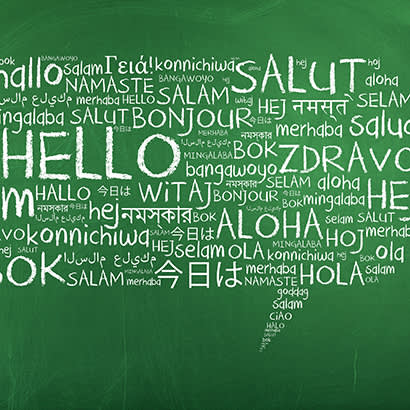
For an enhanced digital experience, read this story in the ezine.
Explore NRPA’s Equity Language Guide
Nearly 10 years ago, NRPA established its Three Pillars: Health and Wellness, Equity, and Conservation.
These pillars were created to speak to the ideals of building strong, healthy and resilient communities through the power of parks and recreation. A lot has changed over the past 10 years, but NRPA’s dedication to advance this vision has not. NRPA remains committed to the guiding principles of these pillars by investing in and championing the work of park and recreation professionals as an essential force of positive change in each of these key areas and in communities throughout our nation.
Our communities are diverse in every sense of the word. Inequity and racial injustice are problems that have been and are still present in every public system across our country. Addressing differences and challenges and creating welcoming and inclusive spaces for communities aren’t the work of someone else — these tasks reflect your work. Park and recreation professionals are the people who work in the spaces where everyone meets — the pool, the playground, the field or the center. What you do has and always will require hard work, and as your membership organization, it’s NRPA’s responsibility to create tools and provide support for all that you do.
Two weeks ago, we released our Equity Language Guide, a direct response to professionals’ request for trusted resources related to diversity, equity and inclusion (DEI). It is based on guidance set forth by leading language guides, as well as resources from multiple organizations, associations and researchers. It represents our attempt to assist people in the field and beyond who are wrestling with ways not just to increase access, but also to create a welcoming environment and cultivate a sense of belonging.
Words have power. Our word choices and how we communicate set the table for a more welcoming environment. We see the guide as a tool — a resource — because we understand that language is often the first place to start when fostering inclusion. It also would be very naïve of us to assume that everyone will embrace this resource, or welcome with open arms words or language that seem at odds with longstanding beliefs or their lived experience or understanding. If, while reading this guide, some of the suggestions made you uncomfortable (or downright angry!), I invite you to ask yourself, “Why?” What words or definitions invoke those feelings? What would happen if you opened up to the possibility of other perspectives?
Earlier in the year, we released our Equity Action Plan. This plan connects our commitment to centering equity and our strategic direction of Preparing Professionals for the Future with our values, namely continuous learning. Whether it’s research, conference education sessions, schools, certifications or our Equity in Practice initiatives, you come to us because you, too, are committed to continuous learning.
Over the next 18 months, we will continue with this commitment by creating a space for you to step out of your comfort zone and step into a learning and growth zone by focusing on the skills necessary for four core competencies. We believe these competencies — self-awareness, direct communication, race equity lens and relationships across differences — are the foundation for individual and organizational change.
We know we don’t have all the answers, but we celebrate progress over perfection. Our guide alone will not put an end to social or racial injustice. However, it is a meaningful step toward a more equitable park and recreation experience.
Autumn Saxton-Ross, Ph.D., is NRPA’s Vice President of Education and Chief Equity Officer.

